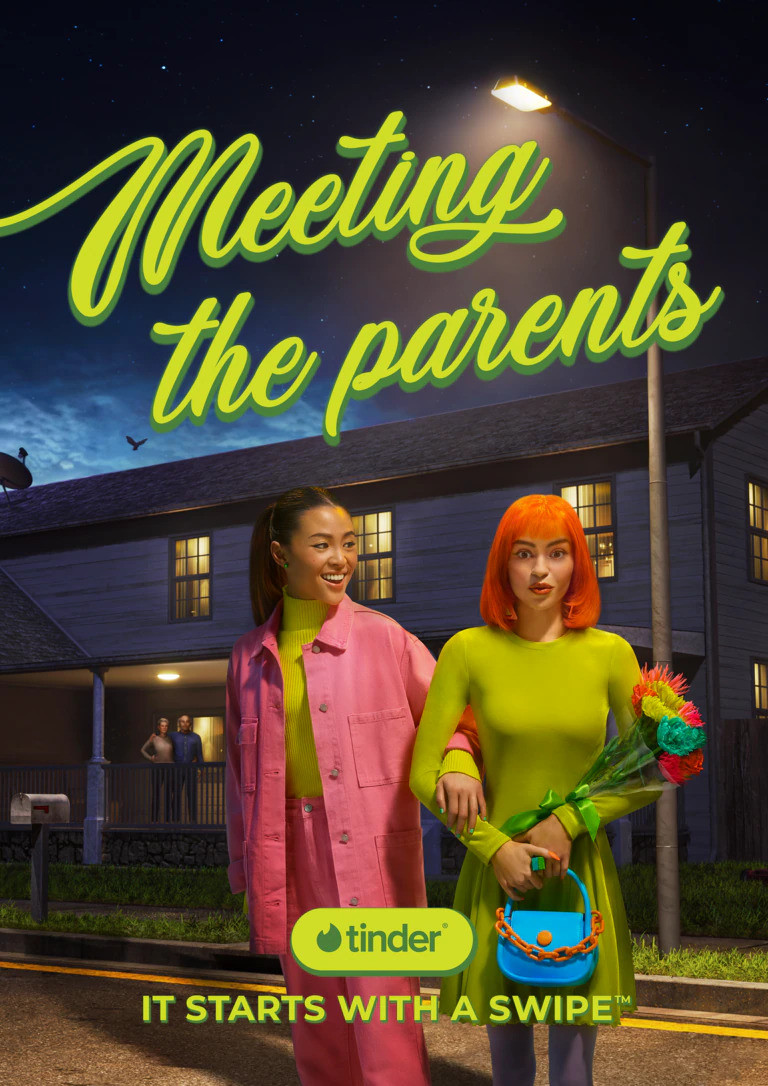Every June, the vibrant hues of the rainbow flood social media as brands worldwide participate in Pride Month, signaling solidarity with the LGBTQ+ community. However, this annual spectacle begs a crucial question: which brands genuinely champion LGBTQ+ rights, and which are merely capitalizing on the symbolic rainbow for profit?
Today’s young consumers, particularly Gen Z, are discerning and value-driven. They demand more than just performative gestures; they seek tangible proof of a brand’s commitment to its stated values. A fleeting rainbow graphic during Pride Month is insufficient. Gen Z expects demonstrable action and year-round dedication.
In an era where brand authenticity is paramount, companies must stay true to their core image and proactively address societal issues. For Gen Z, Pride is not confined to a single month of celebratory marketing. They are pushing for a move beyond “rainbow washing,” a tactic they readily identify and critique.
Research underscores this shift in consumer sentiment. A McKinsey study revealed that a significant 70% of Gen Z consumers actively seek to support brands recognized for their ethical practices. Therefore, a superficial Instagram post is no longer adequate. Gen Z demands comprehensive information and concrete actions that substantiate a brand’s purported allyship.
The Gen Z Pride Perspective
The relevance of LGBTQ+ rights and advocacy within corporate spheres is undeniable, especially when considering the demographics of Gen Z.
A Voxburner study highlighted that approximately 19% of UK Gen Z individuals identify as LGBTQ+. This figure rises in the US, with around 22% of Gen Z respondents identifying within this community. Further research by Voxburner indicates that a remarkable 41% of Australian Gen Z respondents consider LGBTQ+ rights as the social issue closest to their hearts.
These statistics directly influence purchasing behaviors. Gen Z consumers are no longer swayed by surface-level marketing. They delve into company policies and practices. Notably, 80% of US Gen Z respondents stated they would discontinue loyalty to a brand whose values and morals do not align with their own.
Given that LGBTQ+-related policies directly impact a substantial segment of Gen Z, a brand’s Pride marketing initiatives will deeply resonate with this demographic, for better or for worse. Authenticity is the key to positive resonance, while inauthenticity can lead to significant backlash.
Tinder: A Pioneer in Authentic Engagement
Tinder, the globally recognized dating application, exemplifies authentic Pride engagement through its international campaign that champions inclusivity and diversity. This initiative effectively counters the outdated perception of Tinder as solely a “hookup app.”
The “It Starts with a Swipe” campaign has permeated major urban centers like London, New York, and Los Angeles, featuring billboards and signage that showcase diverse couples engaged in everyday relationship activities.
 Diverse couples featured in Tinder's 'It Starts with a Swipe' campaign, highlighting inclusivity and modern relationships.
Diverse couples featured in Tinder's 'It Starts with a Swipe' campaign, highlighting inclusivity and modern relationships.
Tinder boasts a significant Gen Z user base, with approximately 43% in the US and 37% in the UK. According to Paul Brunson, Tinder’s Expert in Relationship Insights, the campaign aimed to spotlight genuine success stories originating from the app and dispel the misconception that Tinder is merely for casual encounters.
Tinder successfully shifted this perception while simultaneously demonstrating meaningful support for the LGBTQ+ community. Their social media platforms, including Instagram and Twitter, feature inspiring narratives of individuals who overcame adversity related to their sexual orientation or gender identity, all culminating in messages of hope under the “It Starts with a Swipe” tagline.
https://twitter.com/Tinder/status/1671634061389864971?s=20
Furthermore, Tinder introduced profile “stickers” for Pride Month, with all proceeds directed to reputable organizations supporting LGBTQ+ rights in vulnerable communities. The company also actively encouraged voter participation in favor of pro-LGBTQ+ legislation in the United States, launching the hashtag #VotingIsHot to promote civic engagement.
Tinder’s consistent and proactive advocacy for LGBTQ+ rights since its inception has resonated positively with consumers. Notably, their social media presence during Pride Month is devoid of overt rainbow imagery. Instead, Tinder focuses on addressing the deeper, systemic issues facing the LGBTQ+ community, contributing substantively to the inclusivity they seek.
https://twitter.com/Tinder/status/1665552172841402368?s=20
Target’s Misstep: When Rainbows Backfire
Contrastingly, Target, a prominent US retailer, experienced a significant decline in sales and consumer trust following its Pride Month advertising campaign. Despite aiming for inclusivity, Target’s approach backfired spectacularly with Gen Z. This generation, known for its acute ability to detect insincerity, immediately recognized the campaign’s shortcomings.
Target launched its Pride campaign in early June 2023, accompanied by a wide array of Pride-themed merchandise in its stores and online. Rainbows were ubiquitous, as the company proclaimed its inclusive values. However, Gen Z consumers swiftly dismantled this façade.
Controversy erupted surrounding certain products, leading to backlash. According to designer Eric Carnell, Target abruptly removed his products from shelves without explanation.
https://www.tiktok.com/@openlynews/video/7239293943698001178?_r=1&_t=8dJstZEKumB&social_sharing=v2
While some criticized the products as inappropriate and argued against corporate commentary on social issues, Target’s response further alienated Gen Z. Instead of defending the LGBTQ+ community and its campaign, Target chose to halt the campaign and withdraw Carnell’s products. This attempt to protect its reputation ironically deepened the divide between the brand and its consumer base.
https://twitter.com/TheCut/status/1668969426811510786?s=20
Target’s case exemplifies “rainbow capitalism,” where brands leverage Pride-themed products during June primarily to generate profit, rather than genuinely advocating for LGBTQ+ rights. This approach is transparent to Gen Z and often results in negative consequences.
Why Target Missed the Mark with Gen Z
Gen Z’s negative reaction to Target’s Pride marketing stemmed from a perceived lack of year-round, consistent support for the LGBTQ+ community. They called out the brand’s seemingly performative activism during Pride Month as insincere. Target underestimated Gen Z’s commitment to researching brand practices and policies beyond surface-level campaigns. The company is now facing significant online repercussions as a result of this misjudgment.
Moving Beyond Performative Rainbows
Our 2021 Youth Trends Report indicates that Gen Z is among the most socially conscious generations, with approximately 74% in the US identifying as activists. These consumers prioritize aligning their purchases with their personal morals and values, especially during Pride Month. Brands that approach LGBTQ+ marketing half-heartedly risk significant repercussions.
Ultimately, brands must substantiate their claims of support with tangible evidence. Authentic support involves championing causes that align with brand values and demonstrating consistent commitment. This can manifest in various forms, from encouraging voter participation to fostering diversity and inclusion within the workplace. Gen Z is attuned to these genuine efforts and rewards brands that prioritize authenticity over performative marketing.
Key Takeaways for Pioneering Authentic Pride
The fundamental lesson for brands navigating Pride marketing with Gen Z is authenticity. Underestimating Gen Z as passive consumers would be a critical error. This generation is composed of inquisitive, independent thinkers who are driven to make a positive impact on the world. They view purchasing decisions as a means to contribute to this change.
Therefore, brands must facilitate this effort by reinvesting profits into initiatives that serve the greater good. During Pride Month, and throughout the year, marketing should be rooted in sincerity. Brands should openly advocate for causes they genuinely believe in, transparently communicate diversity and inclusion policies, and actively engage with local LGBTQ+ organizations within their communities. Pride should not be a fleeting, month-long marketing campaign, but a year-round commitment to genuine support and advocacy.
For deeper insights into Gen Z trends and authentic marketing strategies, subscribe to Pioneer Technology’s Weekly Briefing.

